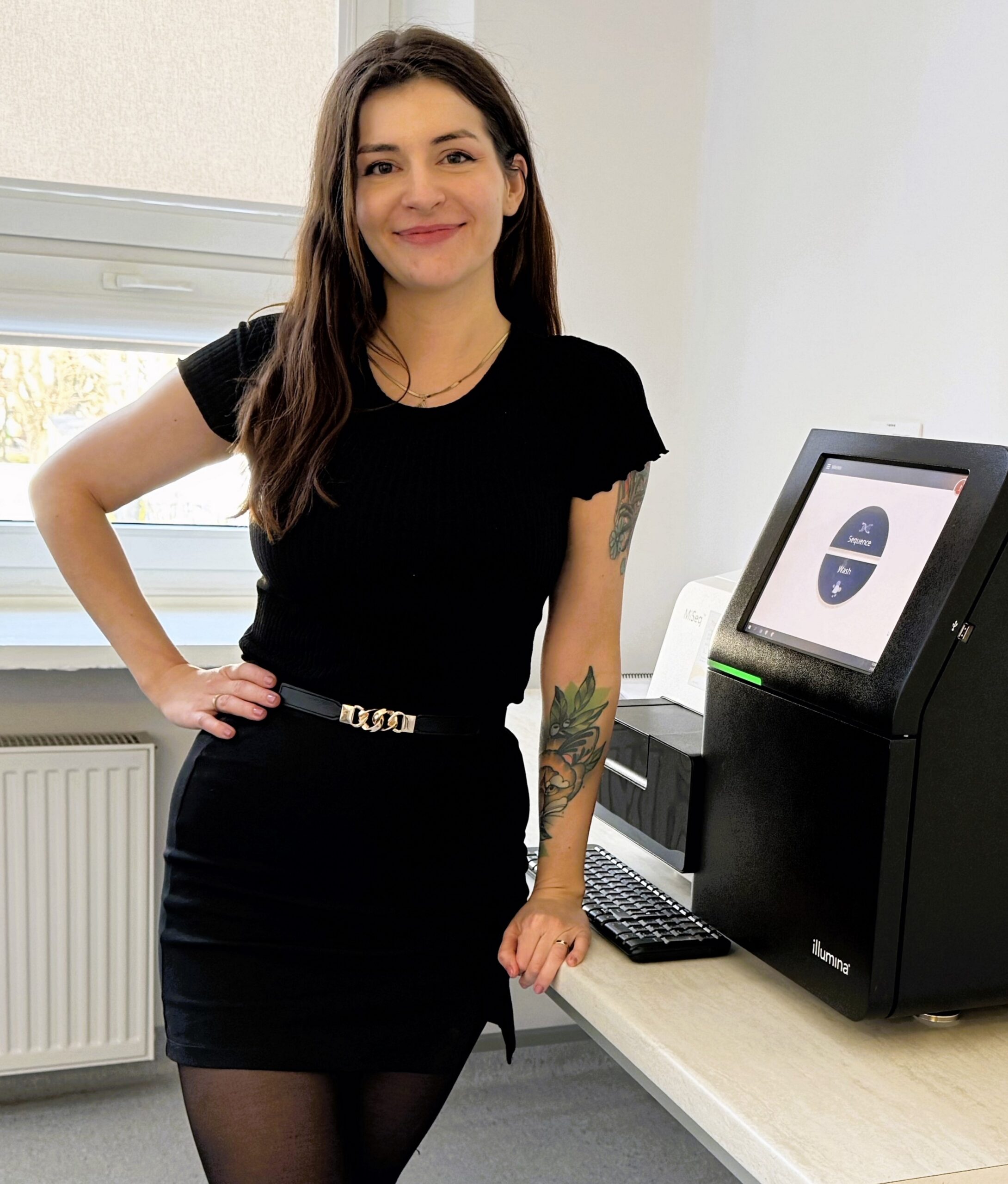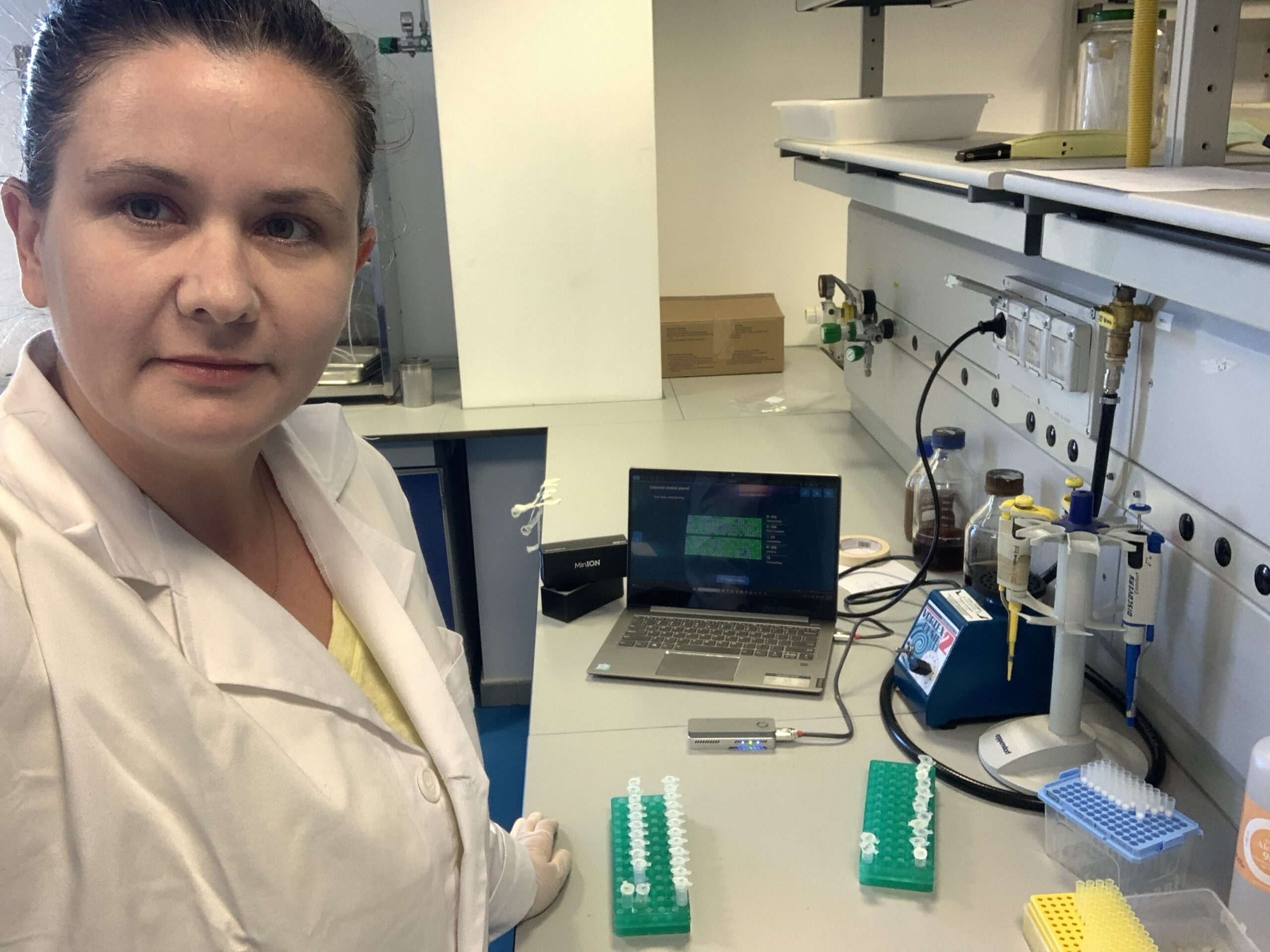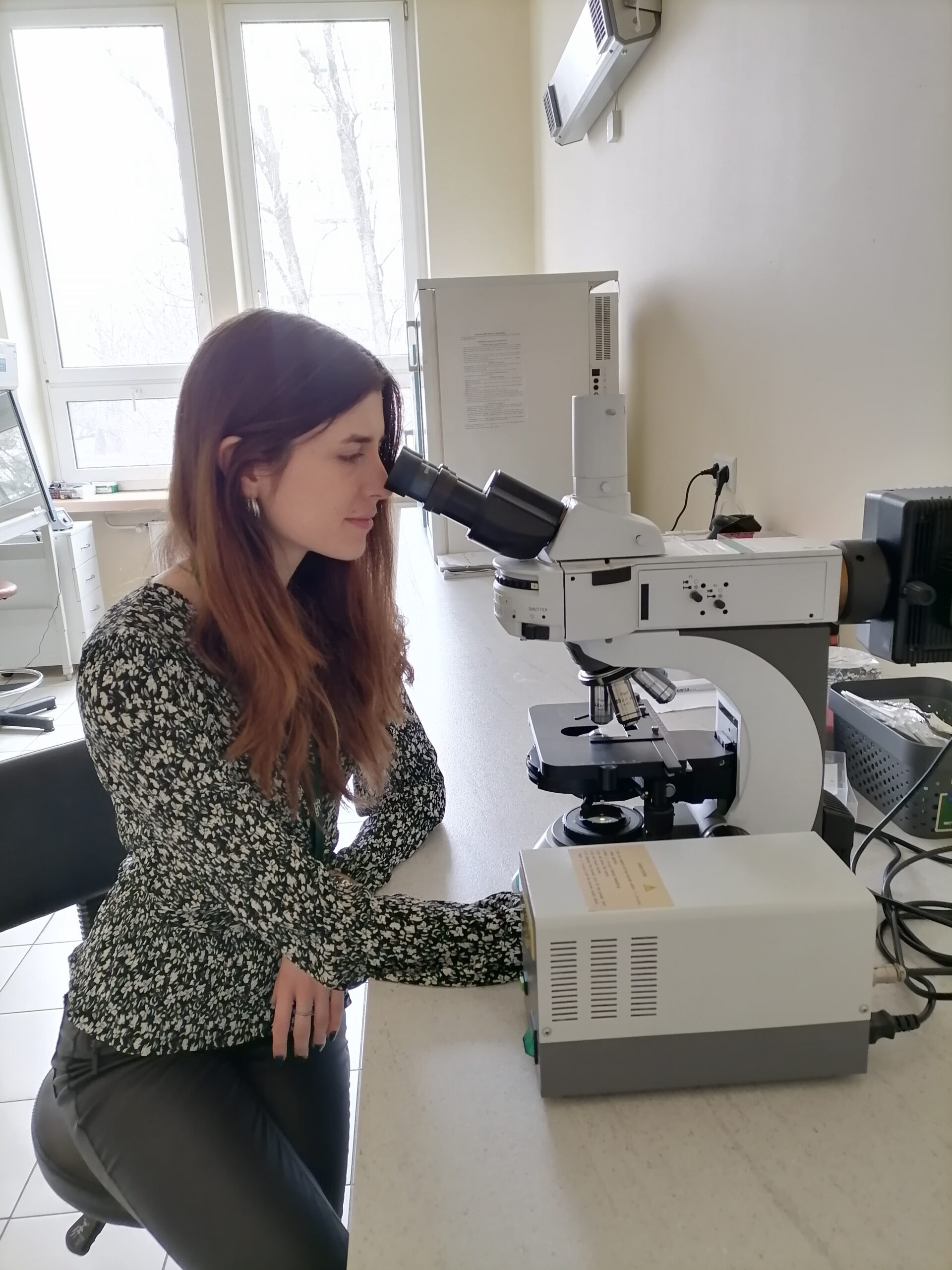Laboratory of Molecular Biology
About Us
Laboratory of Molecular Biology conducts interdisciplinary research in microbiology, molecular biology, and food safety. Our activities focus on analyzing microbiomes from various environments and studying complex interactions between microorganisms, the host, and other microbes. We utilize advanced metagenomic, bioinformatic, and functional analysis methods to investigate microbiome dynamics and their impact on biological processes and health. Our goal is to develop innovative solutions in probiotic therapy, microbiome modification, and food safety strategies.
Research Scope
- Investigating the effects of xenobiotics, dietary components, and food products on the human gut microbiota using in vitro models.
- Searching for next-generation probiotics capable of modulating the gut microbiota and influencing inflammatory processes as well as appetite and satiety pathways.
- Analyzing the role of environmental obesogens in obesity development, with a focus on microbiota-related mechanisms and their impact on host metabolism.
- Studying xenobiotic degradation using enzymes produced by WRF organisms and evaluating selected conditions affecting gene expression related to enzyme biosynthesis.
Research Methods
- Molecular Biology Techniques: Gene expression analysis (rt-PCR), microbial quantification (qPCR), next-generation sequencing (NGS) on the Illumina MiSeq platform, Sanger sequencing, ELISA assays, estrogenic and androgenic activity tests using transgenic yeast strains.
- Microbiology: Classical microbiology techniques and strict anaerobic microorganism cultivation using an anaerobic chamber.
- Bioinformatics Analysis: Microbiome characterization, sequencing data processing, and interpretation to determine microbial composition and function.
Team
Head of the Laboratory:
Dr Paulina Średnicka – Assistant (ORCID 0000-0001-8597-301X)
Graduate of the University of Łódź in Biotechnology with a specialization in microbiology and the Polish-Japanese Academy of Information Technology in Bioinformatics. PhD candidate at the AgroBiotech PhD School. Research interests include interactions between human gut microbiota and xenobiotics, with a particular focus on endocrine-disrupting compounds, including obesogens, and their effects on microbiome function in the context of obesity and metabolic disorders.
? Email: paulina.srednicka@ibprs.pl
Dr. Eng. Joanna Bucka-Kolendo – Adjunct (ORCID 0000-0002-8082-1153)
Dr. Eng. Joanna Bucka-Kolendo conducts research in microbiology and the genetics of industrial microorganisms. Her work focuses on studying microorganisms, including lactic acid bacteria, which play a key role in biotechnology and the food industry. She investigates the genotypic and phenotypic properties of microorganisms, particularly their resistance to environmental stressors. Her research also includes genetic resistance mechanisms and the use of molecular techniques for microbiota identification and analysis, crucial for controlling the quality and safety of industrial products.
? Email: joanna.bucka@ibprs.pl
MSc Eng. Agnieszka Zapaśnik – Assistant (ORCID 0000-0002-5492-8352)
Graduate of Human Nutrition and Food Assessment at SGGW and PhD candidate at the AgroBioTech PhD School. Research interests focus on using microorganisms, particularly fungi from the WRF group, for degrading xenobiotics present in food. Her studies also include analyzing food contaminants and exploring innovative methods for their elimination using microorganisms and other biological techniques.
? Email: agnieszka.zapasnik@ibprs.pl
Offer
- Genetic Identification of Microorganisms – Taxonomic identification of pure bacterial, yeast, and mold cultures, including DNA isolation, PCR with standard primers, Sanger sequencing, and comparative analysis with databases. Sequencing is an invaluable tool for identifying unknown isolates in critical aseptic areas and determining the causes of food spoilage.
Research Capabilities
- Metagenomics – NGS amplicon sequencing for microbiome analysis (16S rDNA – bacteria) in environmental and biological samples without the need for isolating pure microbial cultures. This method is used in studies of gut, environmental, and industrial microbiota.
- Bioinformatics Analysis – Processing and analyzing 16S rDNA sequencing data, including data filtering, microbial identification, microbiological diversity analysis, and visualization of results.
- Estrogenic and Androgenic Activity Testing – YES (Yeast Estrogen Screen) and YAS (Yeast Androgen Screen) tests for detecting endocrine-disrupting compounds in environmental, chemical, agrochemical, biocide, pesticide, and other samples.
Collaboration and Internships
The Laboratory of Molecular Biology at IBPRS-PIB offers opportunities for student internships and thesis research (engineering, bachelor’s, and master’s levels). We are a research unit committed to close collaboration with other scientific institutions. Those interested in working with us are encouraged to contact the laboratory head.
Key Publications
- Średnicka, P., Roszko, M., Emanowicz, P., Wójcicki, M., Popowski, D., Kanabus, J., & Juszczuk-Kubiak, E. (2024). Influence of bisphenol A and its analogues on human gut microbiota composition and metabolic activity: Insights from an in vitro model. Science of The Total Environment, 956, 177323.
- Zapaśnik, A., Pierzgalski, A., & Bryła, M. (2024). Determination of Opium Alkaloid Content in Poppy Seeds Using Liquid Chromatography Coupled with a Mass Spectrometer with a Time-of-Flight Analyzer (UPLC-TOF-HRMS). Foods, 13(17), 2826.
- Bucka-Kolendo, J., Kiousi, D.E., Dekowska, A., Mikołajczuk-Szczyrba, A., Karadedos, D.M., Michael, P., Galanis, A., Sokołowska, B. (2024). Exploration of Alicyclobacillus spp. Genome in Search of Antibiotic Resistance. Int. J. Mol. Sci. 2024, 25, 8144.
- Zapaśnik, A., Bryła, M., Sokołowska, B., & Waśkiewicz, A. (2024). Pleurotus spp.—An effective way in degradation mycotoxins? A comprehensive review. Mycotoxin Research, 41, 1–13.
- Średnicka, P., Roszko, M. Ł., Popowski, D., Kowalczyk, M., Wójcicki, M., Emanowicz, P., & Juszczuk-Kubiak, E. (2023). Effect of in vitro cultivation on human gut microbiota composition using 16S rDNA amplicon sequencing and metabolomics approach. Scientific Reports, 13(1), 3026.
- Bucka-Kolendo, J., Kiousi, D.E., Wojtczak, A., Doulgeraki, A.I., Galanis, A., Sokołowska, B. (2023). Depiction of the In Vitro and Genomic Basis of Resistance to Hop and High Hydrostatic Pressure of Lactiplantibacillus plantarum Isolated from Spoiled Beer. Genes, 14, 1710.
- Zapaśnik, A., Sokołowska, B., & Bryła, M. (2022). Role of Lactic Acid Bacteria in Food Preservation and Safety. Foods, 11(9), 1283.
- Średnicka, P., Juszczuk-Kubiak, E., Wójcicki, M., Akimowicz, M., & Roszko, M. (2021). Probiotics as a biological detoxification tool of food chemical contamination: A review. Food and Chemical Toxicology, 153, 112306.
- Jasińska, A., Soboń, A., Różalska, S., & Średnicka, P. (2021). Bisphenol A removal by the fungus Myrothecium roridum IM 6482—Analysis at the cellular and subcellular level. International Journal of Molecular Sciences, 22(19), 10676.




